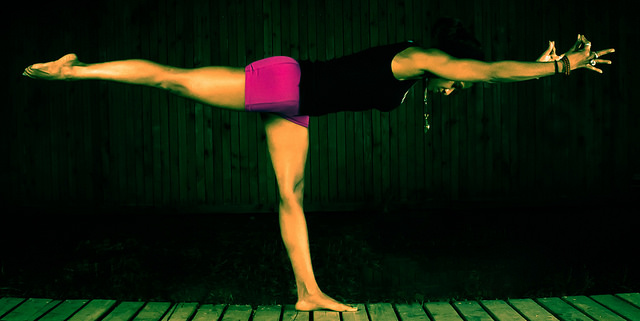Teens are the dream queens of the in-betweens: in life, physical and emotional body, existentialism, and the overwhelming angst of being neither here nor there…the Warrior II hold of a lifetime.
As teenagers, we tend to suffer from obscure thoughts—some are rooted in hormonal or parental angst, others are maturing metaphors: warmed flannel and Starbucks in nature.
I, on the other hand, thought a lot about Purgatory.
I envisioned that the eternal waiting place would look like an ethereal DMV (Department of Motor Vehicles) of sorts; one full of chairs in the shades of colors that were often the left over colors in Crayola boxes. Rows of people practicing patience, perched atop bright orange, yellow and blue stoops of discomfort.
Western religious idioms were ingrained in me from an early age. I was taught Southern, metaphorical, faith-based colloquialisms that were just fun and frightening enough to remember.
They served their purpose; I know that I am not alone.
Purgatory was viewed by my peers, and myself, as the place you go to when you haven’t been quite good enough for Heaven, and you haven’t been so bad that you deserve to go to Hell.
It was the well-intended notion of being in-between, of not being good enough or bad enough, for the places “above and below” our expectations. That’s a beast of a burden to ride shotgun with for the rest of your life.
It was a nurtured discipline that kept me looking beyond where I was, in an attempt to achieve an ideal.
Eastern philosophy teaches the joy of Life’s symphony, and that each member is responsible for the greater sound and enjoyment of all. It echoes awareness in every story and text; an embattled swan song is sung for every hero who wins the war within himself, finding peace and his own internal frequency that vibrates and hums solemnly within Universe.
Buddha’s swan song is our purgatory.
He just sat and waited, perched atop another proverbial stoop.
His led to enlightenment, where as most of us would’ve felt compelled to get off of our asses and move on.
We’ve been taught to search, not to see.
Subconsciously, I wonder if a feeling of purgatory affects us all. We are programmed for movement—emotional and physical, not just a simple state of “being.” We are rooted in the idea that presence is for those who’ve been left behind to reflect on what they are not able to do.
In yoga, the internal space we are trying to create through the practice of asana wears uncomfortably on our faces; it’s a sweater that’s ill-fitting, and sometimes, we can’t wait to take it off. We are cue ready, waiting for the next pose…welcome to purgatory.
I waited a long time to feel enlightened; as if an ethereal bell would chime indicating my number had finally been called. I left classes feeling a release, but wondering if I was missing something; cutting home practice short due to boredom/bewilderment.
In my mind’s eye, I wandered through the forest waiting for the trees to talk to me; I looked for meaning in nature’s echoes on the forest floor and what surrounded me. Subconsciously wanting to be the Seer to the seen, wanting answers to the questions that I thought I should be asking. At the time, not knowing that another part of my brain was on a parallel journey of its own, I walked, and it re-wired.
Slowly, my breath became the breadcrumbs that would lead us back to one another.
The only great epiphany is time, with a gentle dose of trust and humility. So often we trust others with a false sense of surrender, continuing to be battle-ready, our mind premeditating the outcome and preparing a response/exit strategy.
What we fail to realize is that trust has to happen internally before we can give it externally.
Every journey begins with the anticipation of its destination—until we learn to just keep walking.
Purgatory becomes presence.
The waiting becomes finding expansion at the top of your inhale—perched instead on a cliff, with the wide expanse of nature’s beauty below and above you; feeling the space in your physical and emotional body, that you’ve created with breath.
You find the ability to surrender at the bottom of your breath, as you wade in the waters of your practice, accepting the discomfort you are feeling as fleeting; accepting change as your only constant.
Not there yet? Keep your heart and head held high, and most importantly, keep practicing.
Author: Brittany Beltram
Editor: Emily Bartran
Photo: Ann Harkness/Flickr












Read 2 comments and reply